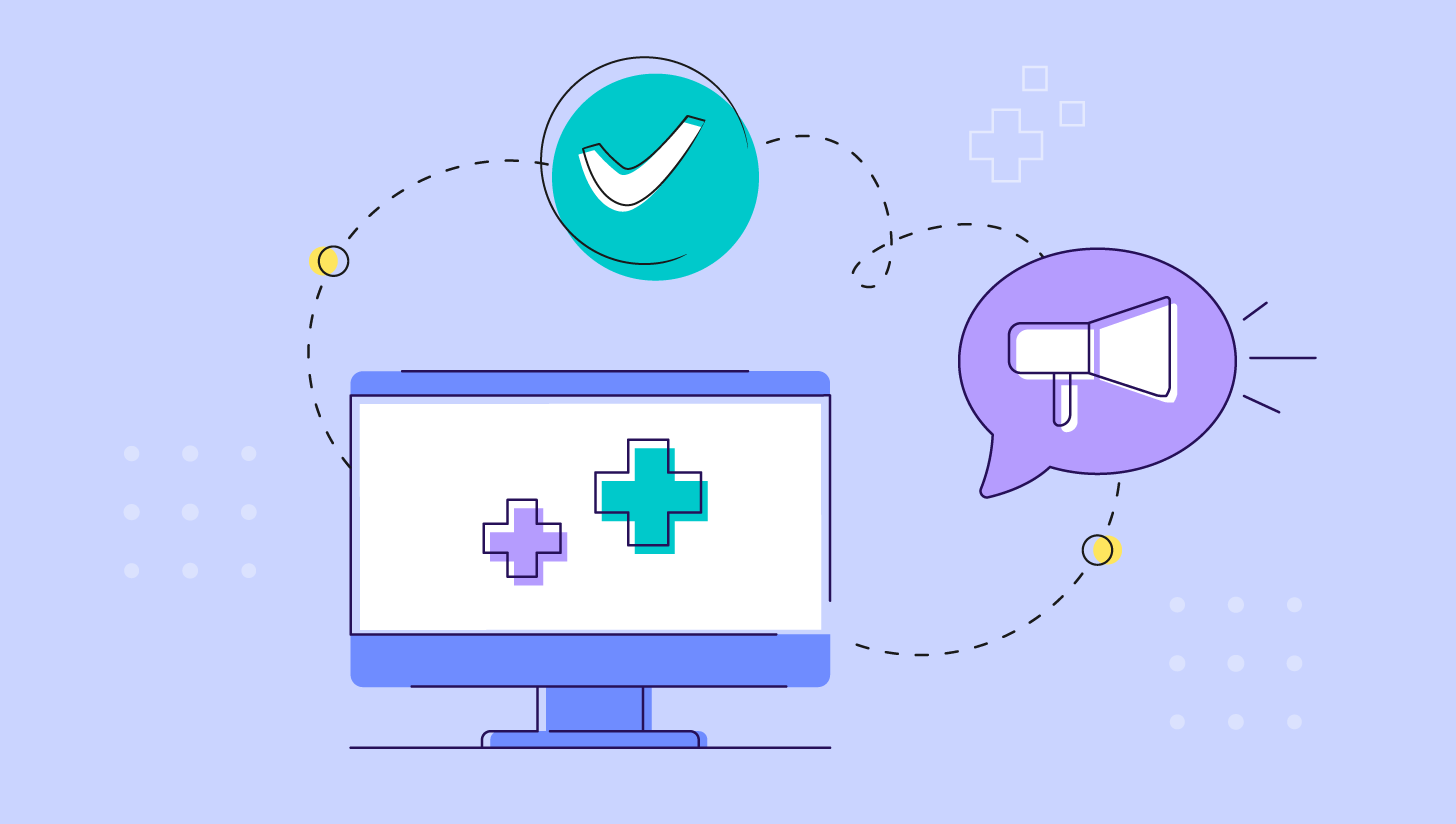



It seems like every business is engaging in content marketing, especially in the B2B healthcare technology space. But many of them make critical mistakes because they misunderstand what the discipline involves.
To help you maximize healthcare marketing benefits, we'll debunk some common myths that may hold you back from achieving healthcare content marketing success. But first, let's get onto the same page on what content marketing is — and what it isn't.
Content marketing provides insight and information relevant and valuable to the target audience, addressing their preferences and challenges. The content should educate the audience and position your brand as a helpful resource.
Your content marketing strategy should focus on building trust and relationships with prospects and customers. You can publish content in various formats, such as blog posts, articles, videos, infographics, podcasts, e-books, case studies, interviews, etc., to cater to different preferences and learning styles.
However, many healthcare software companies make the mistake of publishing overly promotional content while overlooking the needs and preferences of the target audience. While you may have a call-to-action (CTA) inviting the reader to learn more about your product, content marketing works differently than traditional, direct advertising.
Additionally, content marketing isn't a one-time project. Instead, it should be a long-term strategy and consistent effort that aligns with your brand's value, mission, and identity while supporting your SEO efforts and social media strategies.
To leverage the healthcare marketing benefits offered by content marketing and SEO, we must address and debunk these common myths:
Your website won't appear higher in search engine ranking just because you post content. You must have a solid SEO strategy and support it with high-quality content instead of publishing thousands of mediocre posts that aren't valuable to your readers. Google's Helpful Content update and EEAT guidelines further reinforce an audience-centric approach to healthcare content marketing.
Having a blog is essential for your content marketing strategy, but your effort shouldn't end there. Distributing your content through other channels, such as authority sites and social media, helps you reach a broader audience while building backlinks to help improve your SEO and rank higher in relevant search engine results.
Although it takes time to see results, you can measure various metrics to understand the success of your content marketing strategy. These include page views, bounce rates, subscriptions, unique visitors and views, social shares, and more. An experienced healthcare marketing agency can help you connect the dots and identify areas for improvement.
Content marketing can help you reach an audience and gain visibility on a global scale. But it takes time to build traction and become an online authority while allowing Google to crawl your site and index your posts. If you give up on your content marketing strategy after just a few months, you may miss out on one of the top healthcare digital marketing trends!
While AI can help jumpstart content ideas and facilitate the writing process, it can't replace writers and editors. At its essence, content is a form of communication between two human beings. A writer with experience in using AI can leverage its benefits while helping you connect the dots and build emotional connections with the audience to achieve the ultimate goal of content marketing — nurturing trust and relationships.
Content marketing should be integral to your overall strategy to help you reap the most healthcare marketing benefits. Your strategy should be informed by sales, supplies, human resources, company news, and more to appeal to your ideal customers and deliver a targeted experience that addresses their needs and concerns.
One of the most important healthcare digital marketing trends involves delivering a rich user experience through various media (e.g., images and videos) to appeal to the audience. Your content strategy should encompass different formats to engage your audience and encourage social sharing. Also, use image and video tags to make them SEO-friendly.
While sales are crucial, content marketing can do much more than immediately produce conversions. In fact, it’s one of your best tools for building trust and warming up existing leads. From building credibility to getting people to sign up for your email list, you can leverage content at different stages of the sales funnel to address the audience's needs (e.g., getting information, comparing solutions.)
Content marketing is especially helpful in B2B healthcare software, where companies have longer sales cycles than B2C sales. Your prospects spend more time understanding your products and how your solution meets their needs. A comprehensive content strategy helps you engage, educate, and nurture key decision-makers throughout the buyer's journey to build trust, stay top of mind, and, yes, ultimately, drive conversions.
Many B2B companies fall prey to these healthcare content marketing myths because they expect to see results overnight. Meanwhile, they overlook the fact that the main conversion drivers — building trust and relationships — is, in fact, content marketing's success.
Moreover, you must have all the moving parts dialed in to get the most out of your investment. After all, content marketing is a complex discipline that involves many aspects: From understanding your ideal audience and finding the right keywords to producing high-quality content and distributing it through the most effective channels, you can't leave anything to chance.
Having expert support will make a big difference in your content marketing success. An experienced healthcare software marketing agency like Spot On can help you audit and develop your content marketing strategy to maximize ROI.
Schedule a time to chat and see how we can help you design a plan and produce content that resonates with your target audience and nurtures leads to convert.



Spot On co-founder and partner Susie Kelley is dedicated to leveraging technology to advance innovative solutions in highly regulated industries. Driven by the opportunity to elevate brands, she co-founded Spot On in 2012 after having spent 15 years honing her marketing skills in an agency. Susie leads business development with a personal touch, focusing on building lasting relationships with clients to meet — and exceed — their goals for business growth.
Get the latest and greatest posts sent straight to your inbox.
